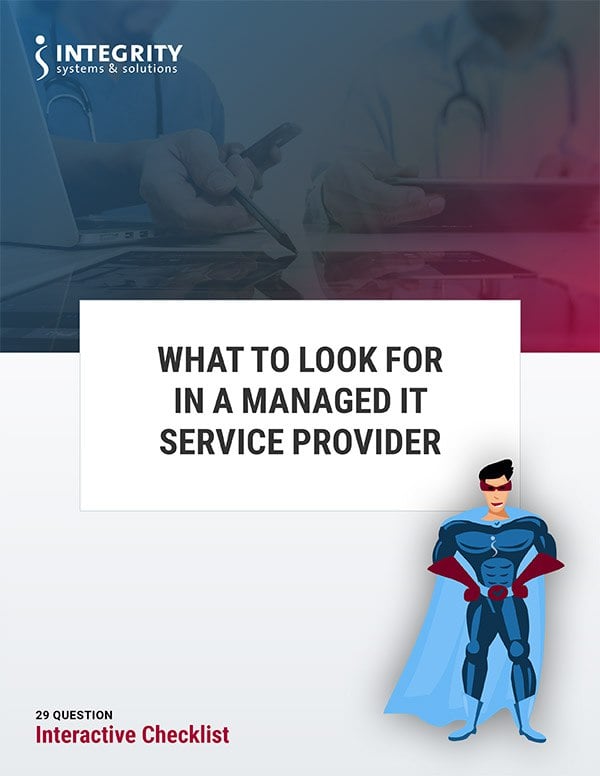The Integrity Blog
Insight into what questions dental and medical practices should ask managed IT providers as they are searching for one. The checklist also dives into red flags to be on the look-out for.
Since Microsoft Windows 7 and Microsoft Windows Server 2008 , including Windows Server 2008 R2, will be going to "end of life" as of January 14, 2020, it is important for you to understand what this means for your practice. Continue reading below to find out how you will be affected, the risks your practice will face if you continue using these products after end of life, and the steps you’ll need to take to switch to new operating systems.
Share
You have found a managed information technology partner, chosen the best practice management software, and have digitized your practice. Now you have to follow healthcare information technology standards. While it may be difficult, following healthcare information technology standards is very important to ensure the best service for your patients. Become familiar with what those standards are, and why it is important to have processes in place in order to preserve the integrity of your patient data and to avoid penalties.
Share

Insight into what questions dental and medical practices should ask managed IT providers as they are searching for one. The checklist also dives into red flags to be on the look-out for.
Communication is key when it comes to providing a better experience for your patients. Improvements in medical information technology have made it easier for practices to adopt new methods to securely communicate with and educate their patients. Not only are there better ways to reach out to your patients, but with the advancements in medical information technology your patients’ private information is secure and Health Insurance Portability and Accountability Act (HIPAA)-compliant. Electronic health records make it easier for you to help your patients understand what is being recorded, and how they can use their health information. Here are five ways you can use medical information technology in your practice.
Share